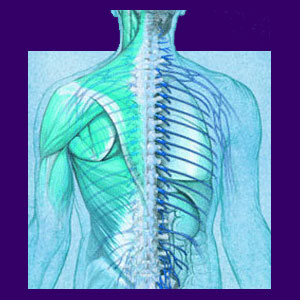
Musculoskeletal disorders are painful conditions affecting the muscles, ligaments, tendons or skeleton of a given patient. The category covers the vast majority of back and spine pain syndromes. Muscular and skeletal disorders can be the result of a disease, degenerative process, injury or psychosomatic causation. Regardless of the source, back pain symptoms are often strikingly similar in nature and unfortunately, are typically horribly debilitating.
This dialog investigates the causes of chronic musculoskeletal pain. We will explore the typical causes of these debilitating pain syndromes, as well as how they are viewed by medical science.
Musculoskeletal Disorders from Injury
A minor injury will not generally create a chronic pain condition. Every healthy body is designed to heal and heal it will. Most injuries will not leave lasting symptomatic expressions, once healed. However, the most severe back injuries can cause permanent damage and scar tissue to the musculoskeletal system, sometimes sourcing ongoing pain. Soft tissue damage, nerve damage and bone damage can all result from extreme trauma.
Poor medical treatment of an injury is also a prime cause of trauma-related musculoskeletal symptoms. These cases of iatrogenesis are unfortunately rather common in the healthcare system.
Musculoskeletal Diseases
Congenital or acquired disease conditions can affect the musculoskeletal system causing pain, weakness or disability. Conditions may range from mild to debilitating.
Many of these diseases do not have a known or accepted cure or cause. Many musculoskeletal diseases destroy the patient’s quality of life and might even eventually create a state of complete dysfunction or effective paralysis.
Musculoskeletal Disorders from Degeneration
Degenerative back pain conditions can create discomfort and related symptoms due to the breakdown of the normal protective structures in the joints and spinal discs. While degenerative changes might be mildly symptomatic, they are rarely the cause of severe chronic back pain.
Spinal degeneration is a usual and expected part of the aging process which should not be inherently painful or problematic. Many patients who are diagnosed with degenerative back pain have been misdiagnosed and are actually suffering from a completely different type of pain syndrome.
Psychosomatic Musculoskeletal Conditions
Psychological pain syndromes often target the musculoskeletal system. Psychosomatic back pain is a perfect example of a seemingly physically induced set of symptoms which are actually caused through a completely mindbody process. These syndromes are rarely correctly identified by physicians, who are simply not trained to recognize and treat psychosomatic conditions.
Many cases of long-term unresolved back pain are eventually identified as psychogenic conditions. Upon realization of the true mindbody cause, these agonizing syndromes can typically be resolved using psychoemotional therapies.
Musculoskeletal Disorders Summary
Correct diagnosis is the key to finding relief from any musculoskeletal pain problem. Sometimes, this is easier said than done, since pain can be caused from a wide variety of possible sources.
Sometimes the best way for a patient to find true and lasting relief may just be to try the traditional medical route, the alternative medical route and the knowledge therapy route simultaneously.
This way, the pain should be effectively treated regardless of the actual cause and the patient will be able to move on with their life, free from the effects of their torturous muscular and/or skeletal conditions.





